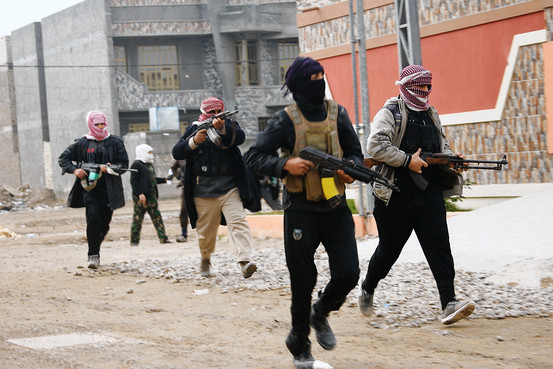Fallout From Syria Conflict Takes Rising Toll on Mideast
< < Go Back
Spiraling violence and advances by al Qaeda-linked fighters in Iraq, Syria and Lebanon are underscoring the cost of Syria’s civil war as it increasingly spills over the country’s borders.
The rise of the Islamist forces in Iraq is particularly worrisome to the Obama administration. In response, U.S. officials said Sunday they were seeking to boost military support—though they emphasized no troops—for Iraqi Prime Minister Nouri al-Maliki to help in his campaign to push back al Qaeda. U.S. officials are also considering new military aid for Lebanon, which is plagued by rising sectarian violence.
Resurgent al Qaeda-allied forces battled Sunday in both Iraq and in neighboring Syria. Fighters in Iraq’s Anbar Province pillaged American weapons from armories after taking control of the town of Fallujah and skirmished with Iraqi government troops on the road to Baghdad, said residents and officials there.
In Syria, al Qaeda-linked militants battled as well—but this time on the defensive. Syrian rebels said they fought al Qaeda militants on Sunday in at least five northern zones the rebels held. Many Syrian rebels have turned on the main al Qaeda group—the Islamic State of Iraq and al-Sham, or ISIS, which is increasingly reviled for its extremism and violence.
This broadening instability, according to Middle East diplomats and experts, is placing the White House in a growing diplomatic quandary as its regional allies fall into competing camps amid a intensifying proxy battle between regional powerhouses Iran and Saudi Arabia.
While the U.S. is trying to shore up the Shiite-led government in Iraq, it simultaneously is strongly supporting Lebanon’s government and Sunni militias in Syria that are attempting to weaken Iran’s political allies in Beirut and Damascus.
The U.S.’s ability to navigate these worsening regional divisions will greatly influence international attempts to stabilize Iraq, Lebanon and Syria in the coming months, said these diplomats.
More From The Wall Street Journal (subscription required):




